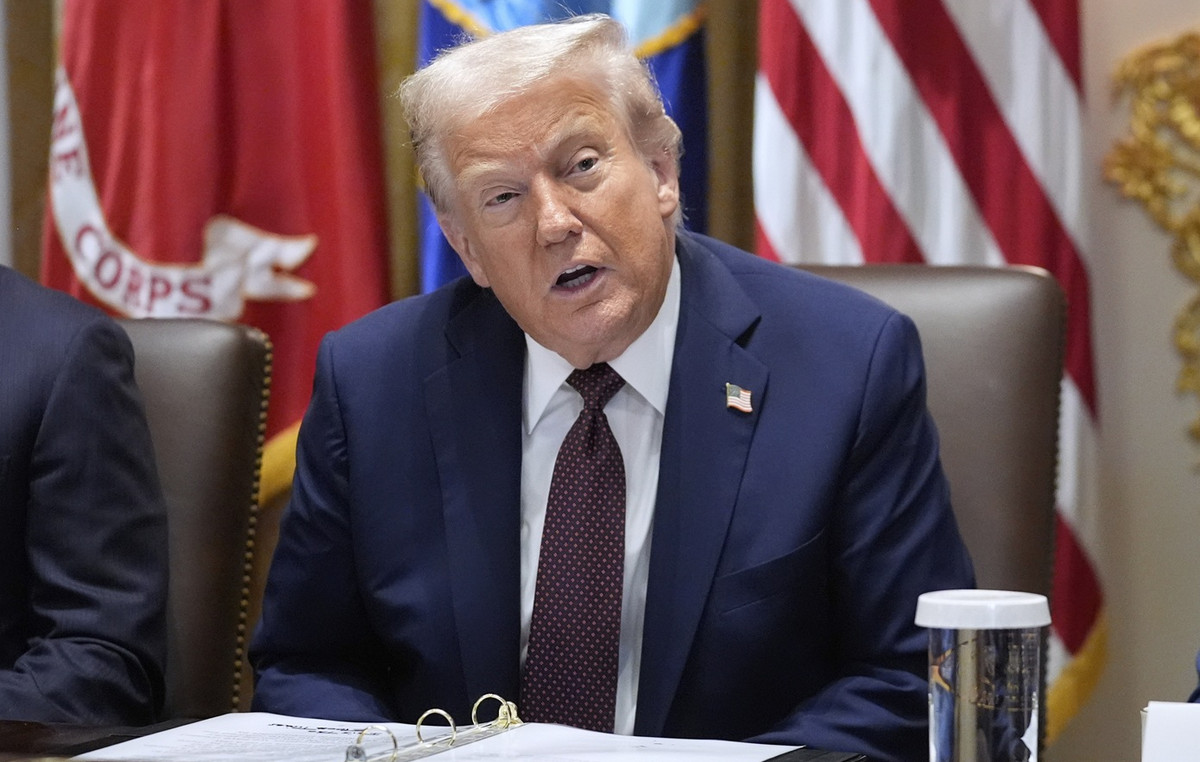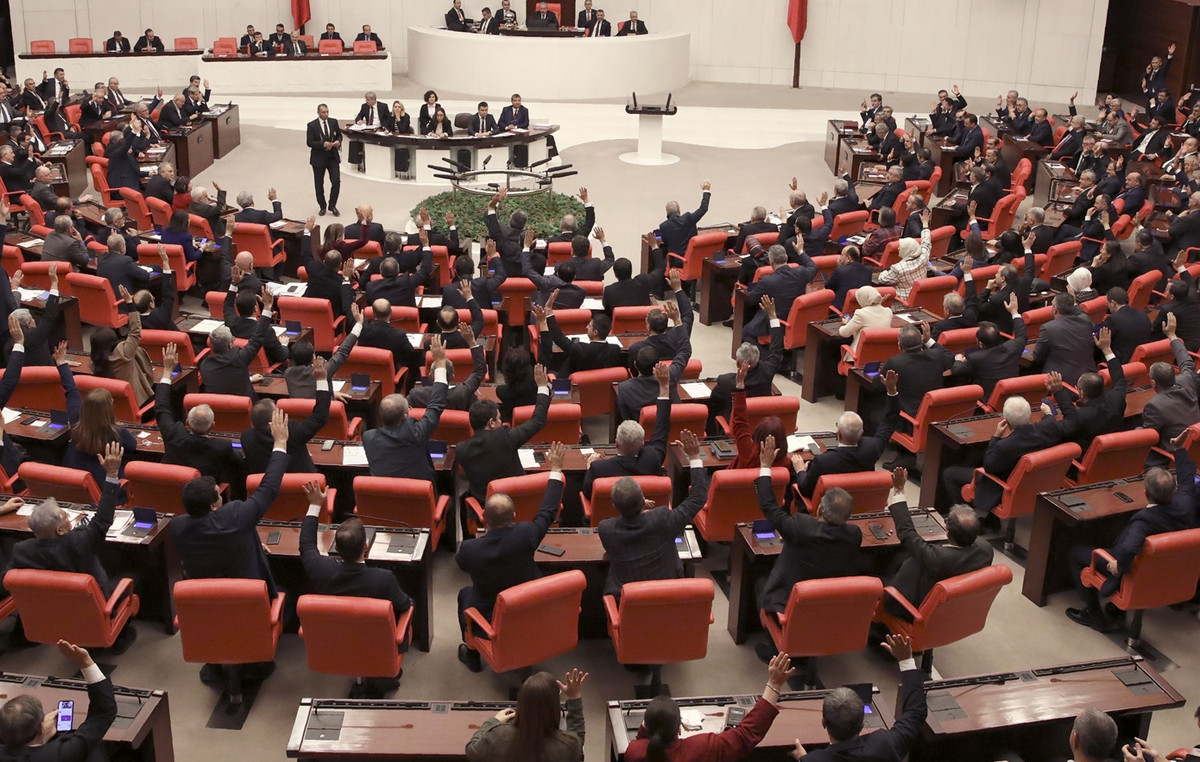A Evergrande you are in default on your debt. Now, Beijing is intervening to prevent a disorderly collapse of the indebted real estate group, which could wreak havoc on the world’s second-largest economy.
Fitch Ratings said on Thursday that the embattled real estate developer has entered into “restricted default,” reflecting the company’s inability to pay interest accrued earlier this week on two outstanding bonds. dollar. Payments were due a month ago and grace periods expired on Monday (6).
Evergrande’s apparent failure to pay interest has revived fears about the future of the company, which is suffering from more than $300 billion in total debt liabilities.
The company is huge — it has about 200,000 employees, grossed more than $110 billion in sales last year and has more than 1,300 developments in more than 280 cities, according to the company.
Analysts have long feared that a meltdown could trigger broader risks for the real estate market gives China, harming the owners and the financial system in general. The real estate market and related sectors represent up to 30% of the Chinese GDP (Gross Domestic Product).
Chinese authorities have so far downplayed the prospect of contagion risks.
“China’s leadership is trying to play it cool, but the circumstances surrounding Evergrande’s downward spiral raise serious questions about the administration. [do presidente chinês] Xi Jinping on China’s rapidly cooling economy,” said Craig Singleton, an adjunct China Program Fellow at the Foundation for Defense of Democracies, a Washington, DC-based research institute, in USA.
There is already plenty of evidence that Beijing is taking a leading role in guiding Evergrande through restructuring its debt and expanding business operations.
The local government of Guangdong province, where Evergrande is based, said late last week it would send employees to the company to oversee risk management, strengthen internal controls and maintain normal operations.
And earlier this week, Evergrande announced it would create a risk management committee, including government representatives, to focus on “mitigating and eliminating” future risks.
Among its members are senior officials of large state-owned enterprises in Guangdong, as well as an executive of a large central government-owned debt defaulter.
Chinese authorities have also taken other steps. The central bank announced on Monday that it would pump $188 billion into the economy, apparently to stem the slump in the housing market.
“These latest interventions, by both the central government and authorities in Guangdong, suggest that Chinese officials are now reluctantly accepting that Evergrande is, in fact, ‘too big to fail,”‘ Singleton said.
Global investors can “cut their hair”
Massive restructuring will come with some pain, at least for global bondholders.
Beijing has made it clear that its priority is to protect the thousands of Chinese who have bought unfinished apartments, along with construction workers, suppliers and small investors. The government also wants to limit the risk of bankruptcy of other real estate companies.
Investor fears over the Evergrande default have raised financing costs for other developers as yields on Chinese offshore corporate debt increase.
At the same time, the government has been trying for over a year to contain excessive indebtedness on the part of developers – and that is why it does not want to dilute this message.
That means the government can be “happy to see the company itself go down and investors cut their hair,” said Louis Kuijs, head of economics at the Asia from Oxford Economics, in a research note this Friday (10). The term “cut your hair” refers to investors suffering the effects of a company default.
Chinese regulators blamed the company’s leaders for the Evergrande crisis. Their troubles were the result of “mismanagement and blind expansion,” the country’s central bank and securities regulator said on Monday in public statements, reiterating earlier criticisms.
Yi’s comments on Thursday during a video speech on a forum in Hong Kong, highlight the government’s priorities. He noted that Evergrande’s problems would be addressed “in a market-oriented manner.”
This “reinforces the authorities’ continued position of not resorting to any bailouts,” said Yeap Jun Rong, market strategist at IG Group.
Impact on economic growth
It’s a “delicate balancing act” to allow Evergrande to fail while minimizing any economic or financial impact, said Kujis, especially given the broader downturn in the housing market, which has seen several other developers default, including the Kaisa Group this week.
New home prices in China fell in October for the second month in a row, according to data from the National Bureau of Statistics. The fall in September was the first in six years on a monthly basis.
A major slowdown in the real estate sector, along with other factors, could drag the growth of the START next year to 4.3%, according to Ting Lu, Nomura’s chief China economist. This is much lower than the company’s estimated growth for 2021 of 7.8%.
During an online conference on Friday, Lu also warned that the government must not suddenly reverse its restrictions on housing finance.
Such a turnaround would undermine Beijing’s long-term goals, he added, pointing to a desire to reduce the economy’s dependence on real estate and divert resources from it to other sectors, such as technology.
Oxford Economics’ Kuijs expects Beijing to take policy measures aimed at homeowners, troubled developers or banks exposed to debt risk.
He suggested that such moves could include making it easier for developers to raise funds in the capital markets, adjust land policies and increase construction of rental units.
“We also look forward to a broader easing of fiscal and monetary policy,” he said. “And the government is likely to take steps to contain the ripple effects of the financial system, including the possibility of circumscribed banks, particularly exposed to distressed developers.”
Singleton warned, however, that the housing crisis remains an imminent threat to China.
“The possibility of contagion to other parts of China’s vast economy remains very real,” he said. “And this is where China’s central bank faces its biggest constraint – while it may contain the financial implications of a real estate default, it cannot offset the impact of the housing market on China’s real economy.”
*(Translated text. Click here to read the original, in English)
Reference: CNN Brasil
I am Sophia william, author of World Stock Market. I have a degree in journalism from the University of Missouri and I have worked as a reporter for several news websites. I have a passion for writing and informing people about the latest news and events happening in the world. I strive to be accurate and unbiased in my reporting, and I hope to provide readers with valuable information that they can use to make informed decisions.







